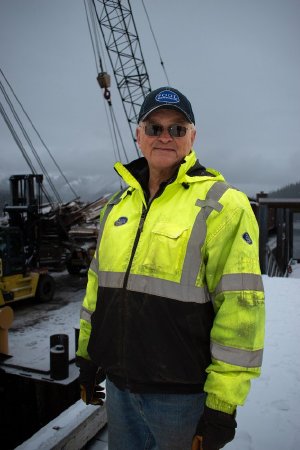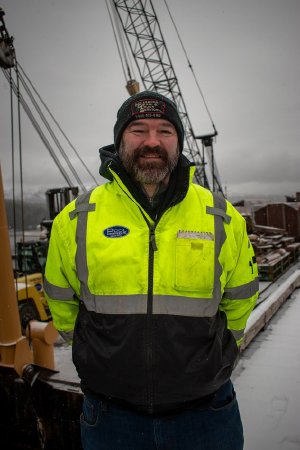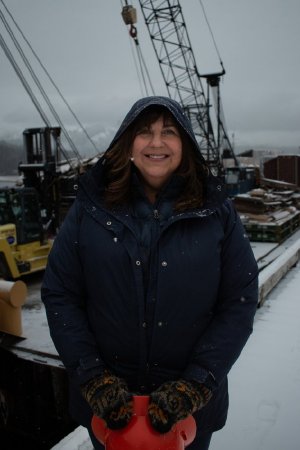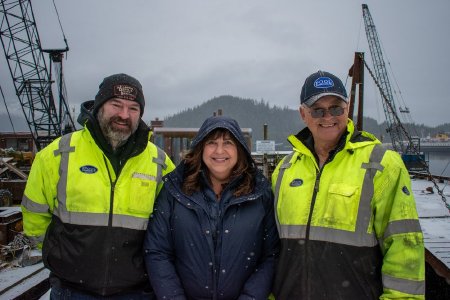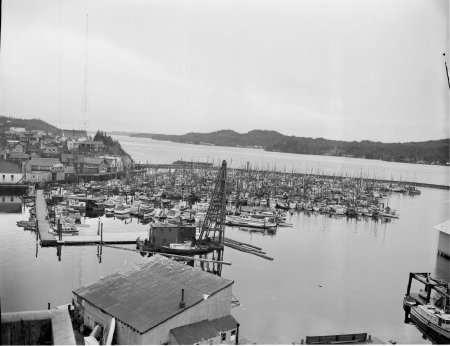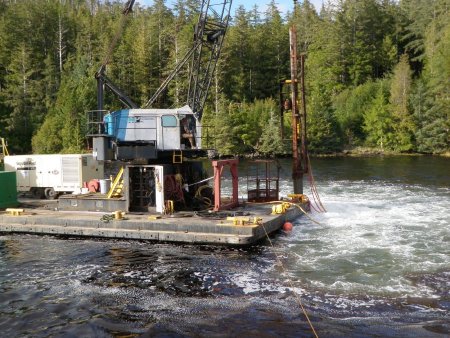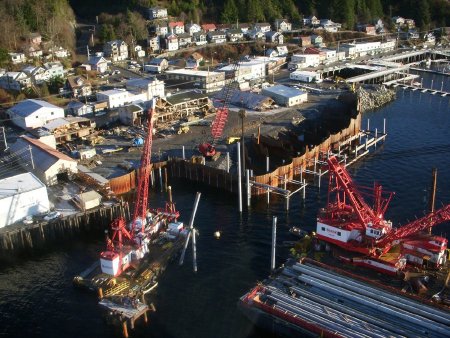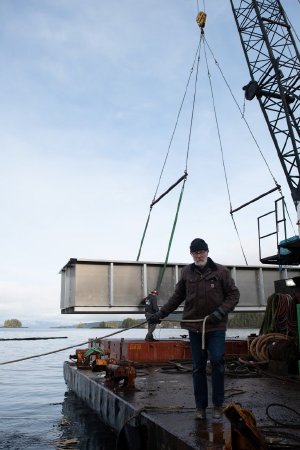Description:
Chuck Pool
Chuck Pool moved to Ketchikan in 1965 after completing his civil engineering degree and worked for the Alaska Department of Transportation. He founded Pool Engineering in 1970 and initially provided consulting and survey work. It is a family business with his son John, an engineer, as vice president and daughter Laurie as the comptroller.
Chuck has seen our waterfront transform over the past 40 years. Pool Engineering has evolved to meet the needs of the community. "Our waterfront is always changing, being redeveloped, and repurposed," Chuck says. "We can try to stop it, or we can position ourselves to be ready to jump on and get ahead of it."
Pool Engineering's main area of expertise is waterfront infrastructure, which includes the bulkheads, breakwaters, pilings, berths, and docks that are essential to waterfront activities. The work they do today is very much like the work that has always been done, but today it requires larger equipment and environmental considerations. Much of their work involves harbor maintenance and improvements, such as zinc anode replacement or swapping out wooden piles with steel and concrete.
"When driving piles, you're working off a floating platform, with tides, currents, and marine traffic that can cause swells," Chuck says. "It requires technical precision and there's a small margin for error."
Chuck has seen our waterfront transform over the past 40 years. Pool Engineering has evolved to meet the needs of the community. "Our waterfront is always changing, being redeveloped, and repurposed," Chuck says. "We can try to stop it, or we can position ourselves to be ready to jump on and get ahead of it."
Pool Engineering's main area of expertise is waterfront infrastructure, which includes the bulkheads, breakwaters, pilings, berths, and docks that are essential to waterfront activities. The work they do today is very much like the work that has always been done, but today it requires larger equipment and environmental considerations. Much of their work involves harbor maintenance and improvements, such as zinc anode replacement or swapping out wooden piles with steel and concrete.
"When driving piles, you're working off a floating platform, with tides, currents, and marine traffic that can cause swells," Chuck says. "It requires technical precision and there's a small margin for error."
Click to Enlarge

